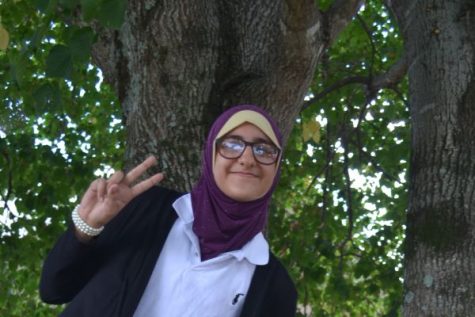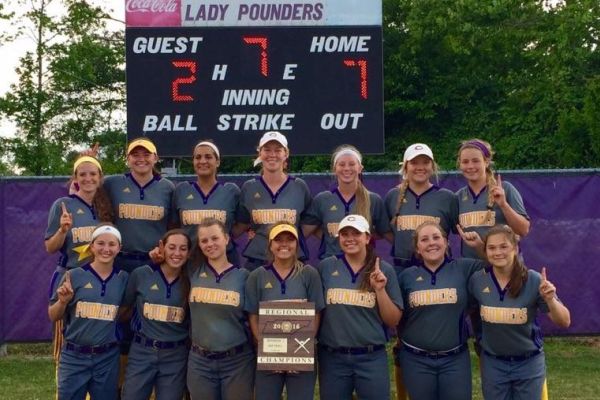Editorial: Central’s First Steps Towards Women’s Empowerment

More stories from Zeena Whayeb

THE SOFTBALL TEAM — The softball team is shown above after winning regionals last year.
From traditional roles across cultures and historical periods, women have always led inferior roles in society. Today, it seems women still have limited means of power and control even here at Central High School. The softball field used by the girls’ softball team recently received lights after almost a decade of waiting. Yet the boys’ baseball team immediately got lights when their stadium was built. Softball Coach LeeAnne Shurette and the players are grateful and excited to have the lighting, but the delay causes onlookers to wonder why the girls were mistreated for a long time.
“I’m ecstatic about the lights because now we could play later in the day and have tournaments,” said Tatum Morgan, a senior softball player who has played for four years.
Most importantly, women struggle economically as they are still paid less because of the assumption that men can perform tasks better with their better intelligence, better strength, and their bigger size. According to IWPR, women still make just 80 cents for every dollar earned by men. We are not saying gender equality has not changed over the years or that it is the worst it has ever been because that would be a pack of lies. Everyone knows gender equality has gotten better.
For hundreds of years, society has expected men to be leaders. Therefore, boys see leadership roles not only as an option, but often as a natural eventual outcome. In the 21st Century, however, the world has seen that women can be leaders too, such as in Norway, the United Kingdom, and Germany. Moreover, the United States is finally seeing its first female major party candidate for president, Hillary Clinton.
“Why do women beat themselves up for not looking like Kim Kardashian? Even Kim Kardashian does not look like Kim Kardashian! And, frankly, why are we even talking about Kim Kardashian?” said outspoken women’s advocate Sally White, who teaches English 10 at Central High.”Instead,” white states, “We should be talking about Malala Yousafzai, who is a female education activist and Maya Angelou, who was a civil rights activist. As adult women, we need to stop modeling this hair-twirling, ‘I’m-not-good-at-math’ attitude, and start modeling confidence and resourcefulness.”
In our culture, we have a habit of talking about women like they are the spin-off of the male standard. We have actors, and then we have actresses. We have waiters, and we have waitresses. We have Pounders, and we have Lady Pounders. By speaking about women as a variation of the male norm, we are portraying women as an afterthought.
“What is especially unsettling, however, is hearing from students – young people, who are typically ahead of the curve on challenging social conventions – that women belong in the kitchen.’ I have truly heard that from more than one teenager! Do not confine us. Women belong everywhere.” Mrs. White concluded.
We can improve gender equality by being more aware of how we think and talk about men and women. Both genders can strive to be anything, and should not be disparaged because of something as trivial as gender.




